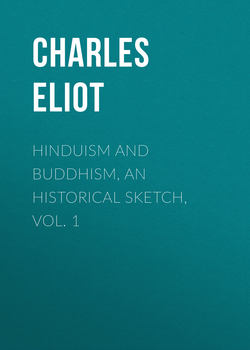Читать книгу Hinduism and Buddhism, An Historical Sketch, Vol. 1 - Charles Eliot - Страница 4
BOOK I
INTRODUCTION
4. Asoka
ОглавлениеGotama spent his life in preaching and by his personal exertions spread his doctrines over Bihar and Oudh but for two centuries after his death we know little of the history of Buddhism. In the reign of Asoka (273-232 B.C.) its fortunes suddenly changed, for this great Emperor whose dominions comprised nearly all India made it the state religion and also engraved on rocks and pillars a long series of edicts recording his opinions and aspirations. Buddhism is often criticized as a gloomy and unpractical creed, suited at best to stoical and scholarly recluses. But these are certainly not its characteristics when it first appears in political history, just as they are not its characteristics in Burma or Japan to-day. Both by precept and example Asoka was an ardent exponent of the strenuous life. In his first edict he lays down the principle "Let small and great exert themselves" and in subsequent inscriptions he continually harps upon the necessity of energy and exertion. The Law or Religion (Dhamma) which his edicts enjoin is merely human and civic virtue, except that it makes respect for animal life an integral part of morality. In one passage he summarizes it as "Little impiety, many good deeds, compassion, liberality, truthfulness and purity." He makes no reference to a supreme deity, but insists on the reality and importance of the future life. Though he does not use the word Karma this is clearly the conception which dominates his philosophy: those who do good are happy in this world and the next but those who fail in their duty win neither heaven nor the royal favour. The king's creed is remarkable in India for its great simplicity. He deprecates superstitious ceremonies and says nothing of Nirvana but dwells on morality as necessary to happiness in this life and others. This is not the whole of Gotama's teaching but two centuries after his death a powerful and enlightened Buddhist gives it as the gist of Buddhism for laymen.
Asoka wished to make Buddhism the creed not only of India but of the world as known to him and he boasts that he extended his "conquests of religion" to the Hellenistic kingdoms of the west. If the missions which he despatched thither reached their destination, there is little evidence that they bore any fruit, but the conversion of Ceylon and some districts in the Himalayas seems directly due to his initiative.
